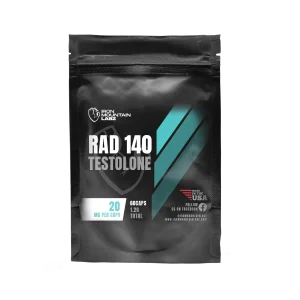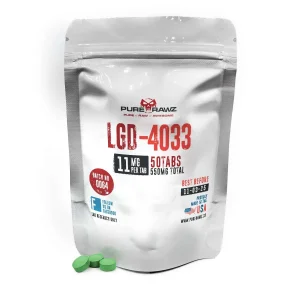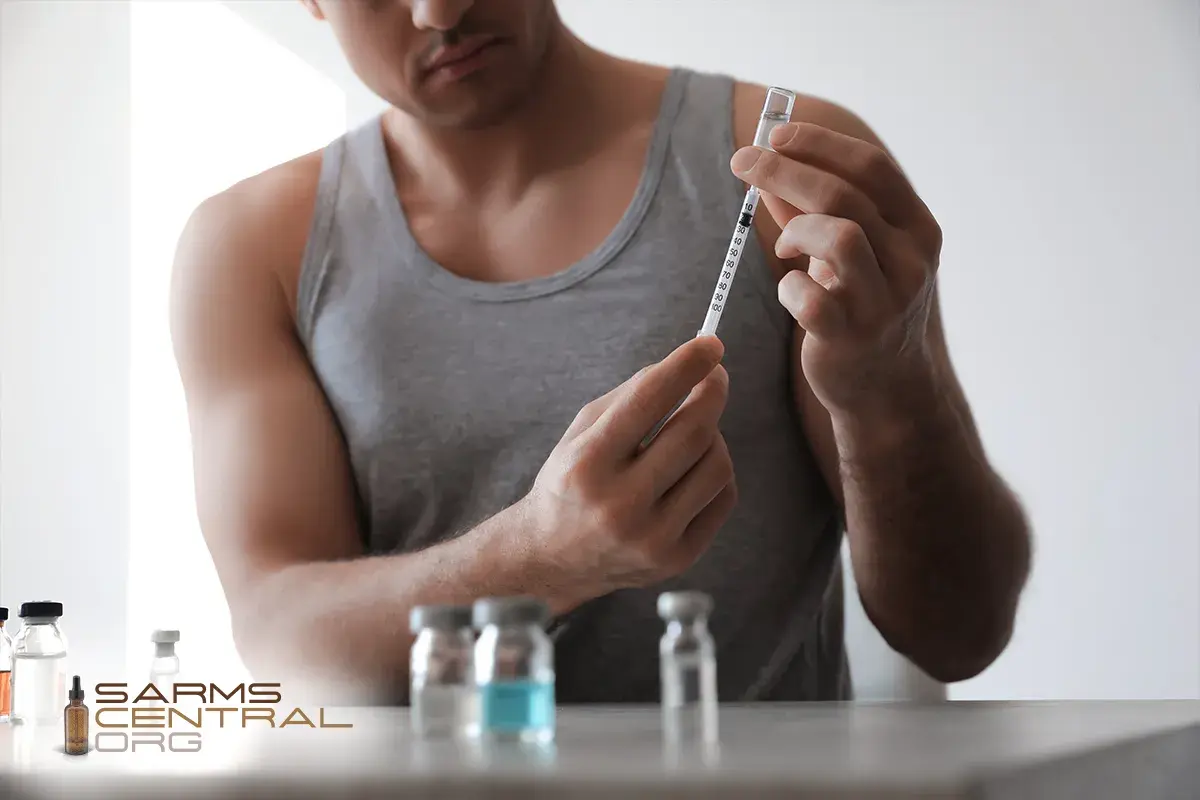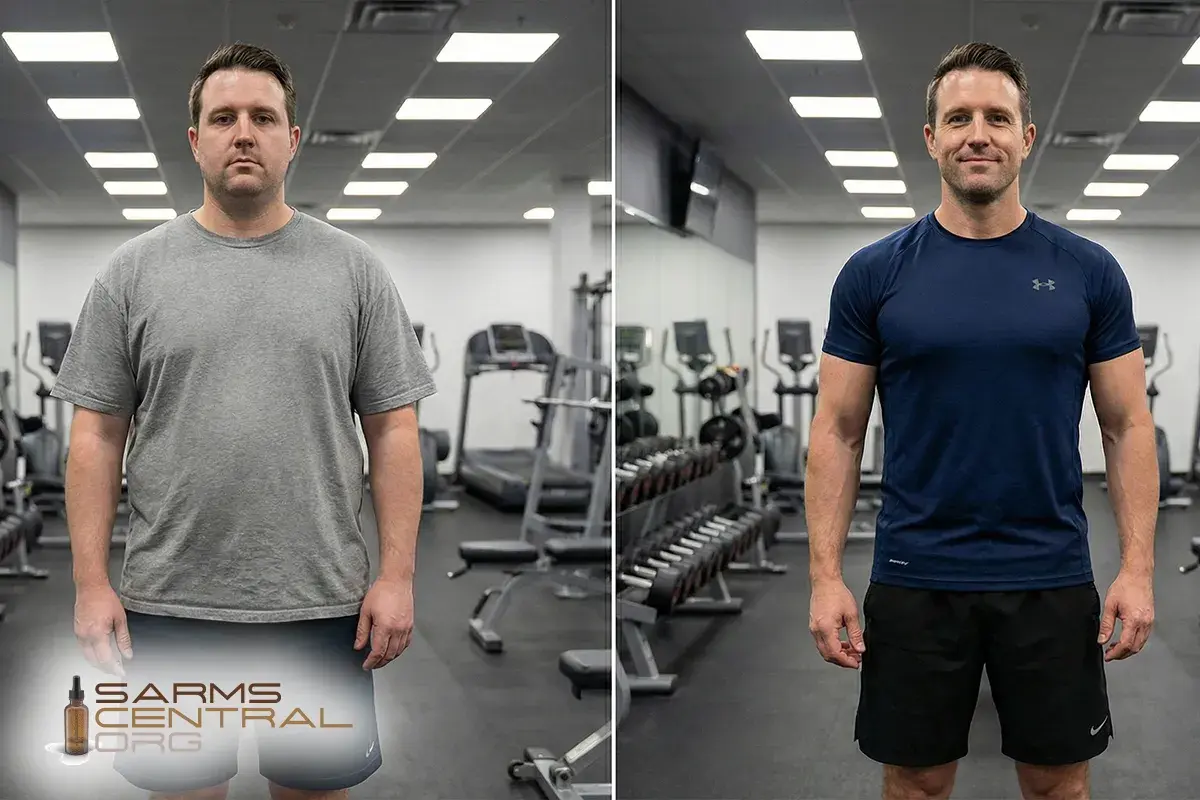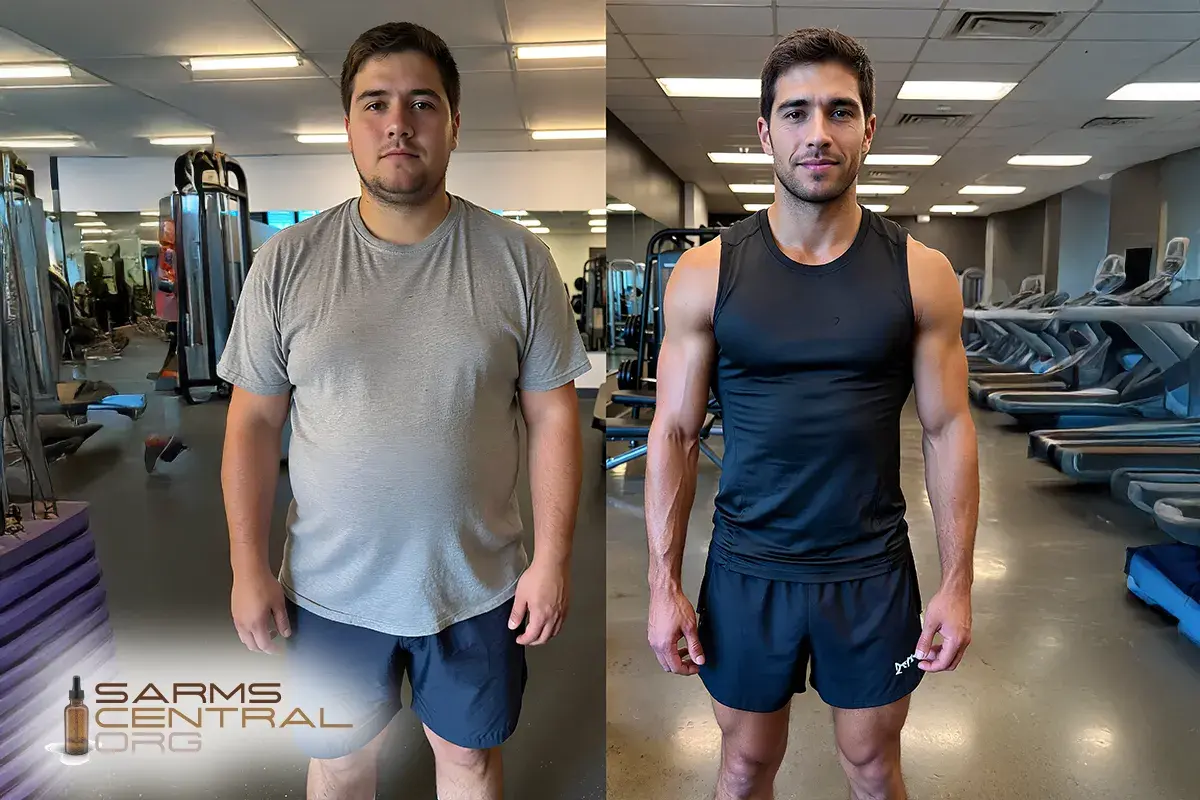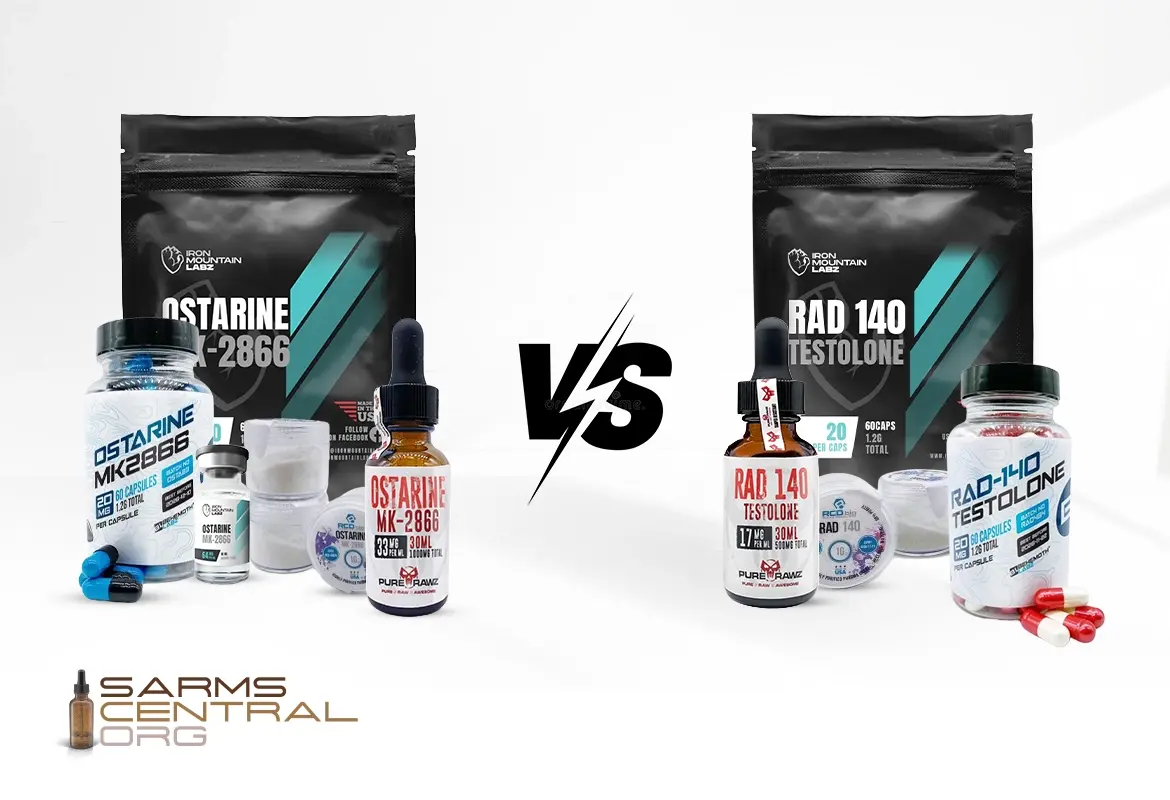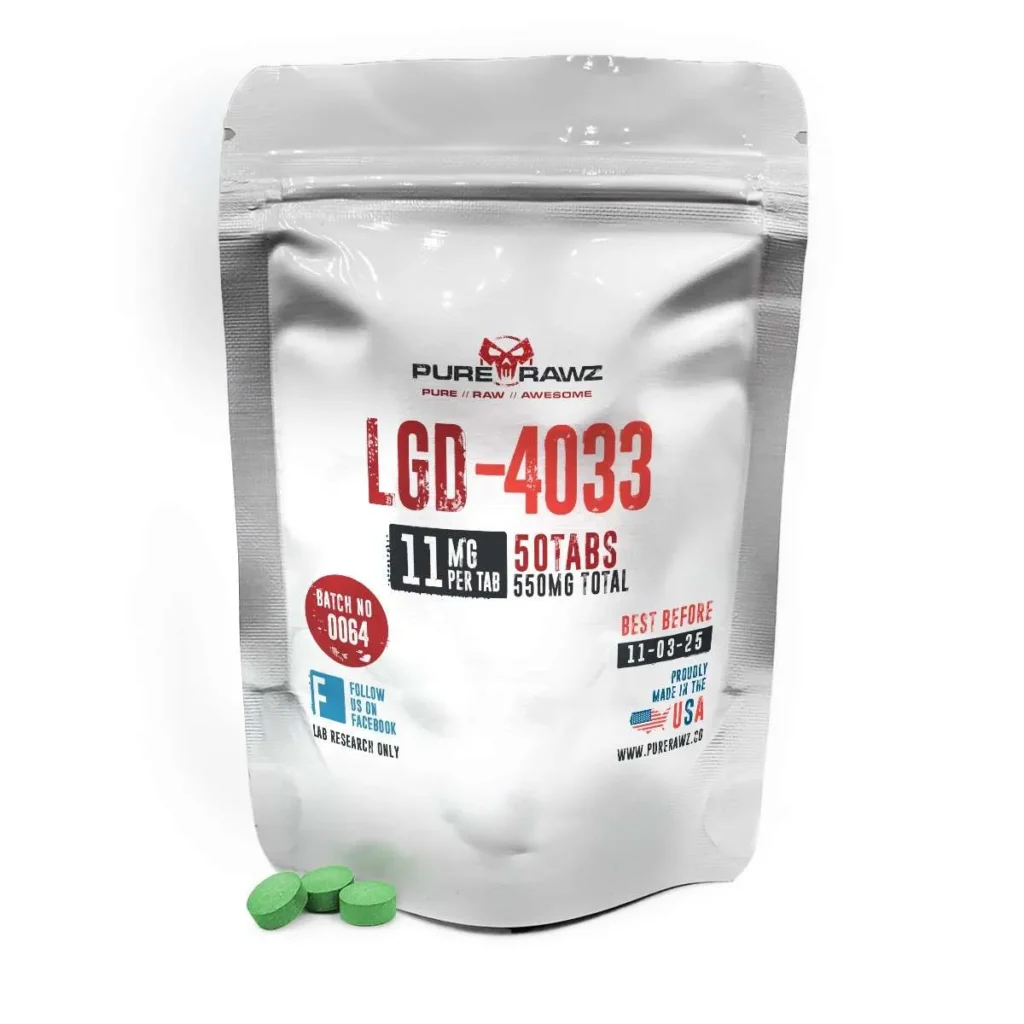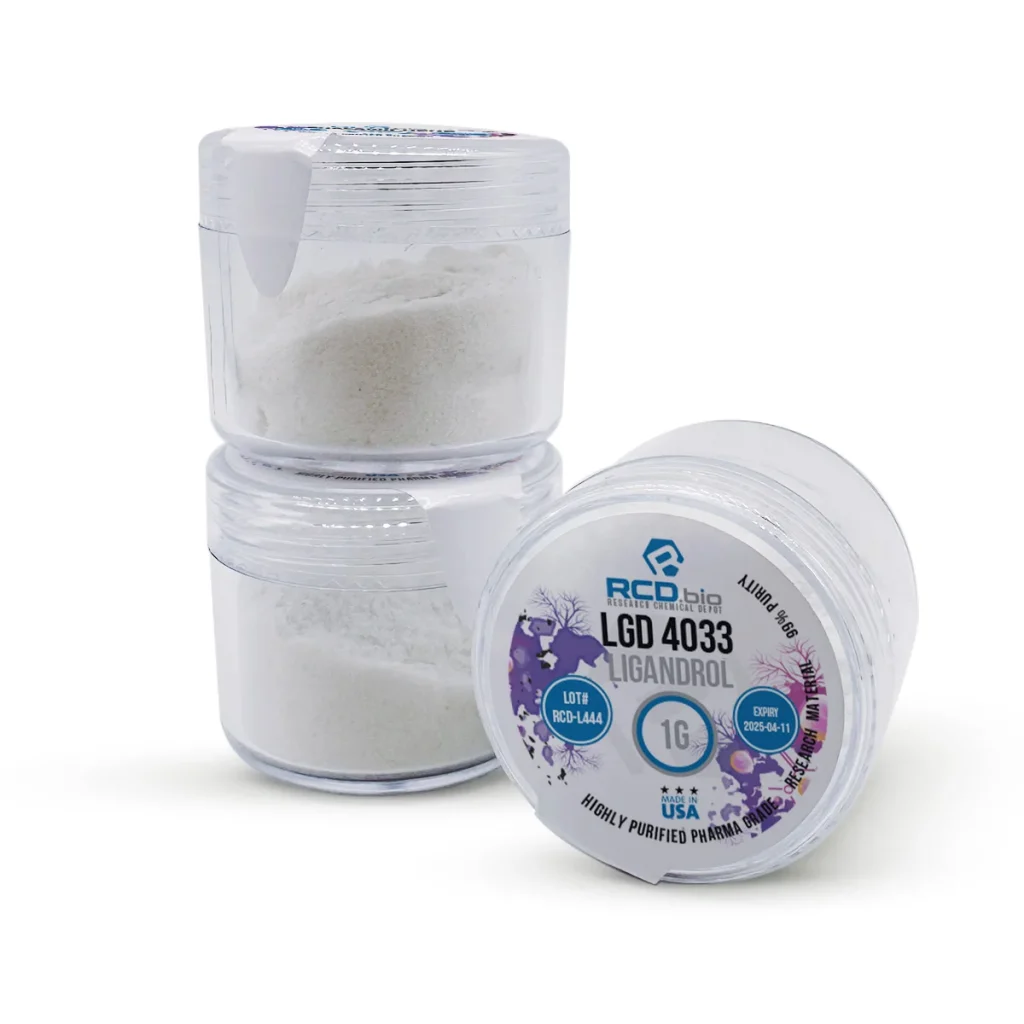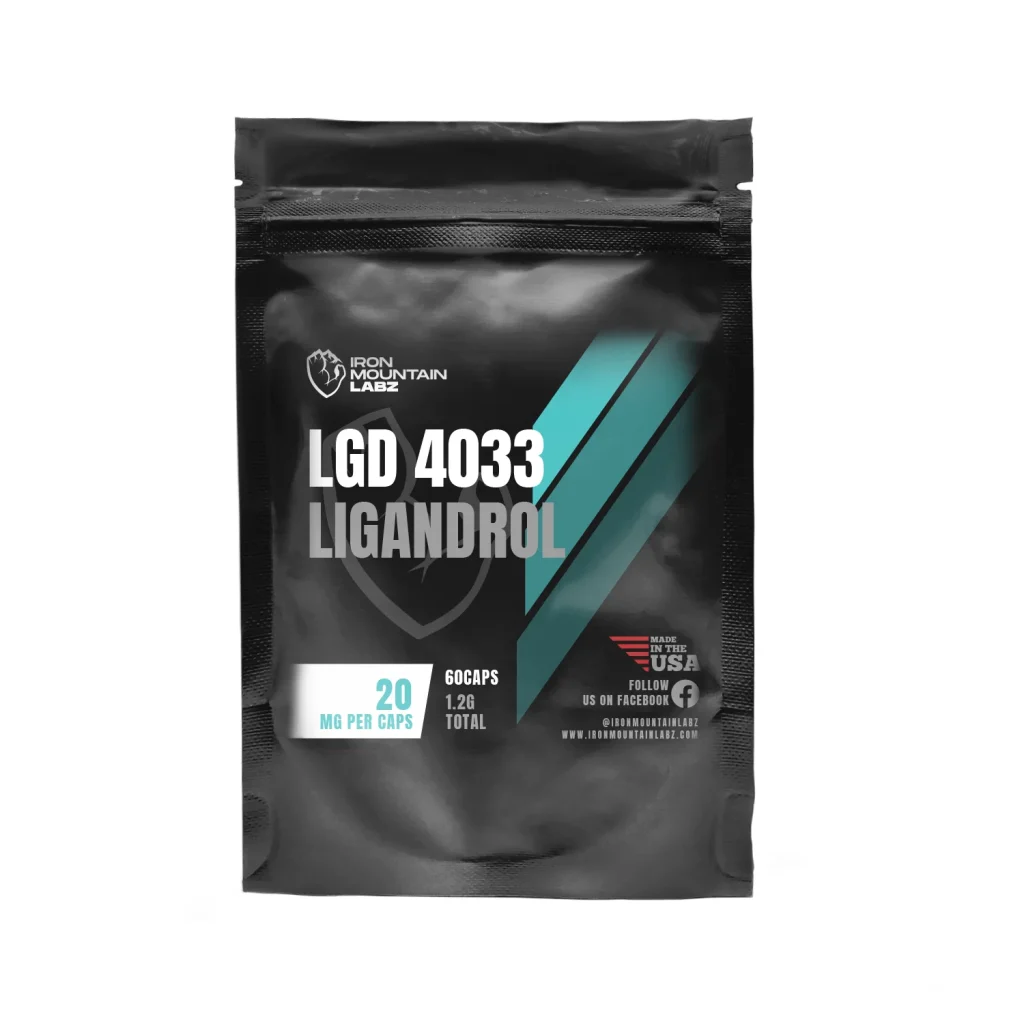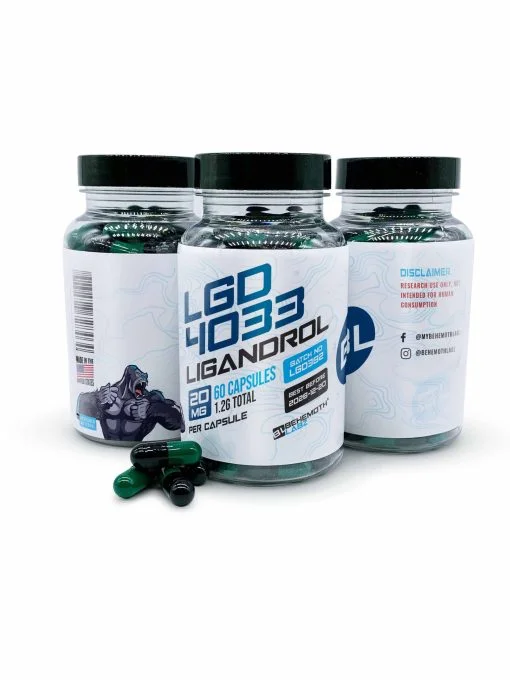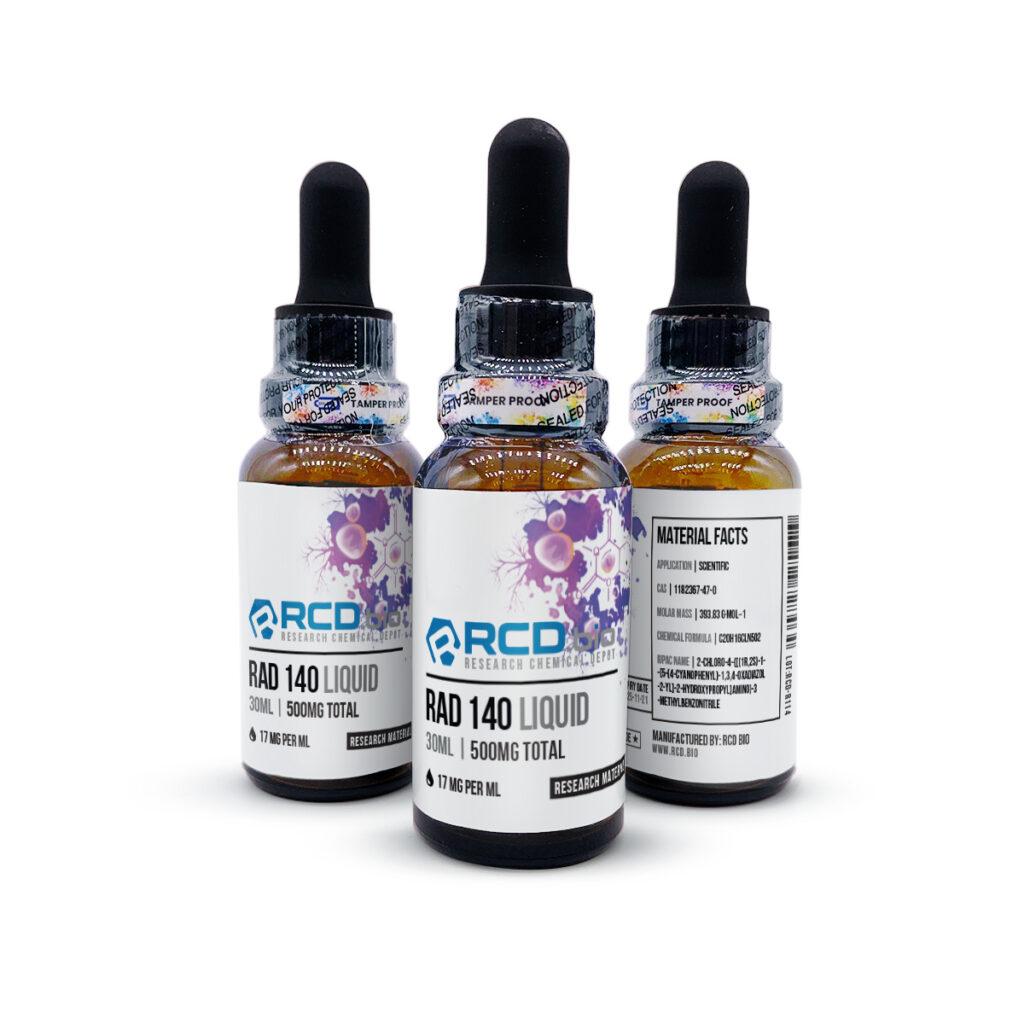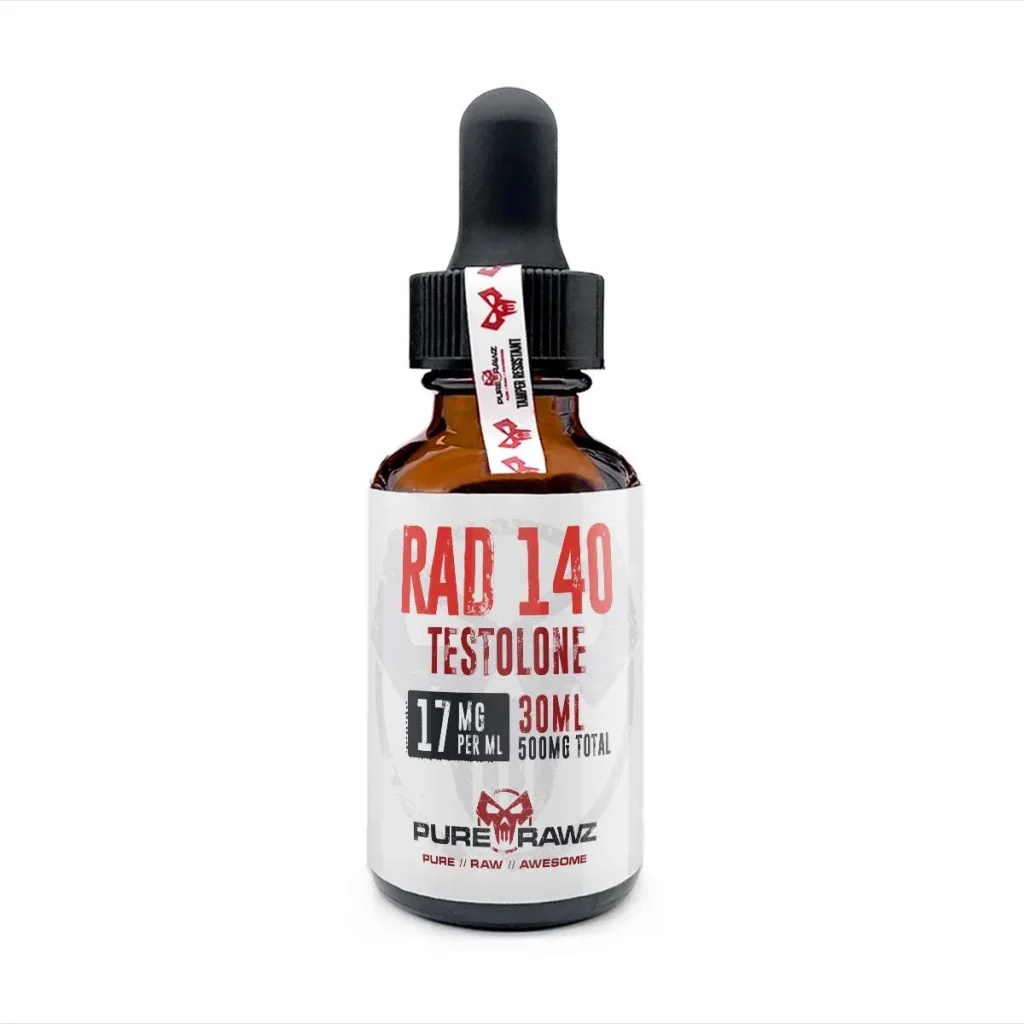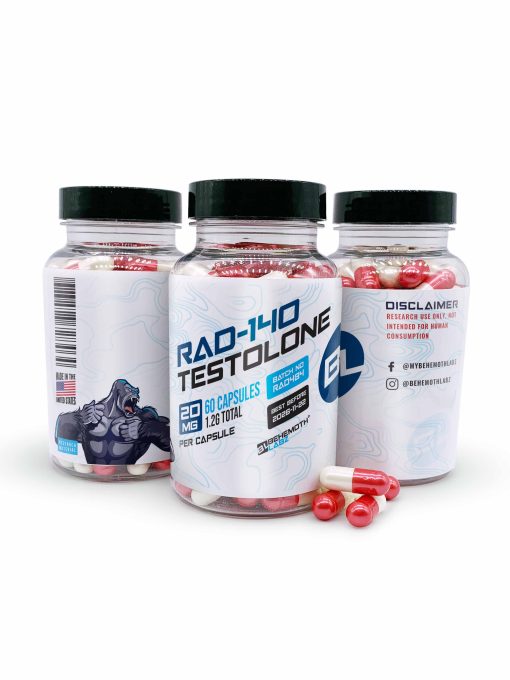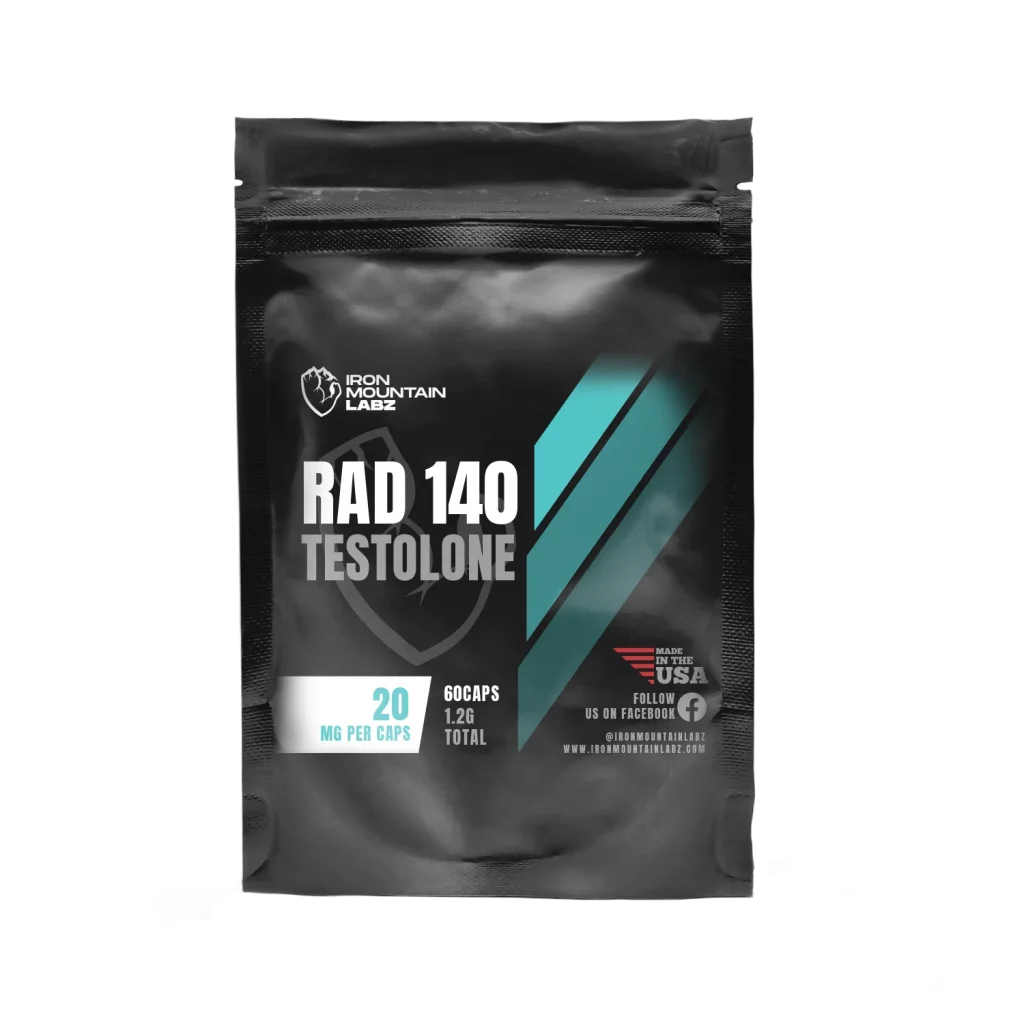SARMs have gained immense popularity in the bodybuilding industry. SARMs have established themselves for their potential beneficial effects on muscle growth, lean body mass, increasing bone density, and boosting physical performance. Among these, probably the most well-known SARMs are RAD-140 (Testolone) and LGD-4033 (Ligandrol). Let us have a head-to-head comparison of both these SARMs and understand their similarities, differences, and potential outcomes.
What is RAD-140 (Testolone)?
RAD-140 is part of a new generation of compounds designed to target androgen receptors selectively, offering the potential benefits of traditional anabolic steroids without many of the associated side effects. {R} RAD-140 is also known as Testolone. It is one of the most potent SARMs. It has become a fan favorite in sports and bodybuilding due to its steroid-like anabolic activity.
Key Features of RAD-140:
- ➢ Strong anabolic effects (often compared to testosterone)
- ➢ Rapid muscle growth and strength gains
- ➢ Great neuroprotective properties
- ➢ Highly suppressive of natural testosterone levels
- ➢ Shorter research history as compared to LGD-4033
Find The Best Prices For RAD-140
What is LGD-4033 (Ligandrol)?
Ligandrol, also known as LGD-4033, is a chemical compound designed to fight muscle wasting or muscle failure. This is best for people with related conditions (such as AIDS or cancer).
Ligandrol is a non-steroidal selective androgen receptor modulator (SARM) that has strong anabolic effects and a slightly more favorable safety profile compared to RAD-140.
Key Features of LGD-4033:
- ➢ Steady lean muscle growth
- ➢ Boosts bone density and recovery
- ➢ Smoother and more tolerable than RAD-140
- ➢ Less hormonal impact than RAD-140
- ➢ A reliable bulking SARM
Mechanism of Action
Both RAD-140 and LGD-4033 work by binding to androgen receptors in muscle and bone tissues, but their potency and binding affinity differ.
| SARM | Mechanism of Action |
| RAD-140 | Binds strongly to androgen receptors with high anabolic activity, mimicking testosterone-like effects. It may also provide neuroprotective benefits. |
| LGD-4033 | Selectively binds to muscle and bone receptors, leading to steady increases in lean mass and strength with fewer off-target effects. |
Benefits of RAD-140 vs. LGD-4033
| Category | RAD-140 (Testolone) | LGD-4033 (Ligandrol) |
| Muscle Growth | Very rapid, steroid-like gains | Strong, but more gradual gains |
| Strength Gains | Significant improvements in compound lifts | Noticeable, but not as aggressive as RAD-140 |
| Fat Loss | Indirect benefits through lean mass increase | Moderate, supports lean body composition |
| Recovery | Faster muscle recovery and endurance improvements | Good for recovery, especially joint and bone health |
| Neuroprotection | Possible cognitive and protective effects | Not primarily associated with neuroprotection |
Cycle & Dosing Strategies for RAD‑140 and LGD‑4033
If you want results with RAD-140 (Testolone) and LGD-4033 (Ligandrol), proper cycle planning and dosing are the key. Based on reports, Sarmcentral recommends a cycle length of 8 to 12 weeks. However, this all depends on experience and tolerance.
RAD-140
- ➢ For beginners: Dose at 5–10 mg per day
- ➢ Advanced users: Up to 20 mg daily
LGD-4033 (more potent per milligram)
- ➢ Dose: 5–10 mg daily
Both compounds are taken orally once a day. Longer cycles or higher doses can increase the risk of testosterone suppression. If that happens you must go for post-cycle therapy (PCT) restoring hormone production.
Stacking Strategies: RAD‑140 and LGD‑4033
Bodybuilders love stacking RAD-140 with LGD-4033. It is a great option for rapid muscle gain. The combo eliminates the side effects of dry, hard muscles that come with RAD-140 alone. A typical stack of both of them should be:
- ➢ RAD-140 at 10 mg/day
- ➢ LGD-4033 at 5 mg/day
- Duration: 8–10 weeks,
- PCT: 4-weeks
The stack boosts lean muscle, strength, and fat reduction. Hormone levels monitoring is a must with this stack as it has an increased risk of testosterone suppression.
Side Effects and Safety Profile
While both SARMs are marketed as safer alternatives to anabolic steroids, they are not free of risks.
| Side Effect | RAD-140 | LGD-4033 |
| Testosterone Suppression | High (often requires PCT) | Moderate to High |
| Liver Toxicity | Mild (oral compound, may elevate enzymes) | Mild to Moderate |
| Estrogenic Effects | Possible, due to hormonal suppression and imbalance | Possible, but slightly lower chance than RAD 140 |
| Other Risks | Headaches, mood swings, potential aggression | Fatigue, water retention, mild GI discomfort |
Legal Status and WADA Testing Concerns
Despite their popularity in the fitness community, both RAD-140 and LGD-4033 remain un-approved for human use by the FDA. Both are marketed for “research purposes only,”. The World Anti-Doping Agency (WADA) has banned all SARMs, including RAD 140 and LGD-4033. Do remember that both supplements have really long half-lives. This means that athletes can test positive even weeks after discontinuing use. Therefore, competitive athletes are strongly advised to avoid the use of any of these supplements.
Which One Should I Choose?
- ➢ RAD-140 (Testolone) is best suited for advanced users. It is great for bulking cycles. As such, RAD-140 is the best choice for people seeking fast, dramatic muscle and strength gains. However, it is highly suppressive and may require aggressive post-cycle therapy (PCT).
- ➢ LGD-4033 (Ligandrol, on the other hand, is better for people who want steady and controlled muscle growth. It is great for lean bulking. It is often considered more beginner-friendly compared to RAD 140.
Comparison: RAD-140 vs. LGD-4033
| Feature | RAD-140 (Testolone) | LGD-4033 (Ligandrol) |
| Potency | Extremely high | Strong but lower than RAD 140 |
| Muscle Gain | 8–12 lbs per cycle (reported) | 5–10 lbs per cycle (reported) |
| Strength | Rapid, dramatic increases | Steady, reliable increases |
| Suppression | Severe | Moderate to Severe |
| Best For | Bulking, strength, and advanced users | Lean bulking, recomposition, intermediate users |
| Side Effects | Higher risk | More manageable |
Conclusion
Both RAD 140 and LGD-4033 represent a promising development in the world of SARMs, offering potential benefits for muscle building, performance enhancement, and bone health. Both are SARMs with strong anabolic potential. In essence:
- ➢ Choose RAD 140 if you want maximum size and strength quickly and are prepared to manage suppression.
- ➢ Choose LGD-4033 if you prefer a balanced approach with lean gains and fewer risks.
Frequently Asked Questions
Where to Buy RAD 140 and LGD-4033 Online?
We recommend that you buy your SARMs from trusted online stores to avoid fake products. Avoid extremely low-priced products. Look for supplements that come with third-party lab testing and certificates of analysis.
In our view the best sites that cover all these attributes for buying Testolone RAD 140 and LGD-4033 SARMs online are PureRawz, RCDBio, Iron Mountain Labz, and Behemoth Labz. To be the best suppliers of research chemicals, all three online stores provide reference materials with every product they sell.
Are both SARMs Legal?
RAD-140 and LGD-4033 can be purchased legally as a research compound. However, both are prohibited for use by athletes and professionals according to the World Anti-Doping Agency.
What is the recommended dosage of both SARMs?
For beginners, a starting dosage of 10mg per day is recommended. This can be enhanced up to 20 mg per day with a cycle length of 8-10 weeks.
What is the Half-Life of RAD-140?
The half-life of RAD 140 is generally considered at 16 hours. However, some reviews say that the compound has a long half-life of up to 60 hours.
What is the Half-Life of LGD-4033?
On average, the terminal half-life of Lingandrol in animals is 4-5 hours.
Is Post Cycle Therapy necessary with both of these SARMs?
Post-cycle therapy is recommended to be started immediately after the application has been concluded.

